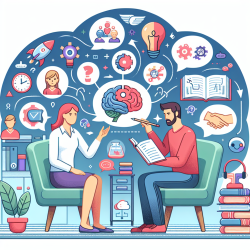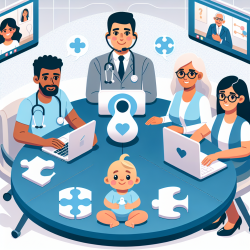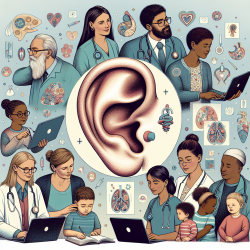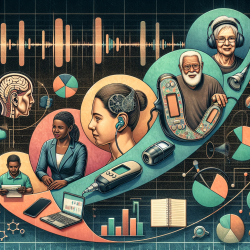As a Special Education Director, I continually seek innovative and effective resources that can support our educators and therapists in enhancing the educational outcomes for our students. It is imperative that we equip our professionals with tools that not only address the diverse needs of our students but also foster an environment of continuous learning and skill development among our staff. In this regard, I want to share insights from two remarkable resources that hold the potential to significantly improve language processing and memory skills in students: "Handbook of Exercises for Language Processing: HELP for MEMORY (1996)" and "Conversations: A Framework for Language Intervention (1996)." These resources offer a wealth of activities and theoretical knowledge aimed at enhancing communicative interactions and memory recall, respectively.
Developing Effective Conversational Skills
The "Conversations: A Framework for Language Intervention" provides a comprehensive guide for professionals looking to facilitate communicative interactions. This resource is grounded in pragmatic language theory and is designed for individuals requiring training in basic social and interactional skills. The activities outlined are particularly beneficial for group work with clients ranging from 11 years to young adults, making it an ideal tool for speech-language pathologists working in collaboration with educators.
The book is divided into two main parts: theoretical background and practical activities. The initial sections provide a solid foundation in pragmatic skills, setting the stage for the diverse range of activities focused on conversational moves, linguistic/conceptual skills, and social/cognitive skills. These activities aim to develop foundational skills for effective conversational interactions, such as introducing, maintaining, elaborating, extending, and changing topics. The author emphasizes the adaptability of the framework to meet the varying needs of participants, encouraging users to modify activities as needed.
Addressing Memory Through Strategic Training
"HELP for MEMORY" takes a different but equally important approach by focusing on memory strategies to aid in recall. The resource is designed for a broad age range, from eight-year-olds to adults, and emphasizes the development of selective attention skills, organization, and the implementation of specific memory strategies. The exercises included are not intended to expand memory but to provide systematic training in strategies that facilitate recall.
The book is well-organized into sections that progressively build on each other, starting with selective attention skills and moving towards more complex organizational and memory strategies. The variety of strategies discussed, including chunking, acronyms, rhymes, and visual imagery, are supported by practical exercises. These exercises not only help in determining the most helpful strategies for the client but also in applying these strategies to school-related and everyday tasks.
Implications for Practice
Both resources underscore the importance of a thorough assessment before intervention. For "Conversations," a pragmatic assessment helps identify the conversational skills that need to be developed, while for "HELP for MEMORY," assessing different types of memory and language skills is crucial in selecting appropriate strategies. These resources remind us that effective intervention requires more than just the application of activities; it demands a thoughtful consideration of the individual needs of each student and the adaptability of strategies to meet these needs.
Furthermore, the emphasis on functional and interactive activities in both resources aligns with the need for interventions to be meaningful and generalizable. Whether it's through enhancing conversational skills or improving memory recall, the ultimate goal is to facilitate better communication and learning outcomes for our students in real-world contexts.
Encouraging Further Research and Professional Development
While these resources provide a solid foundation, they also highlight the need for ongoing research and professional development. As educators and therapists, it is our responsibility to stay informed about the latest strategies and tools available. Engaging with current research, attending workshops and conferences, and participating in professional networks are all crucial steps in ensuring we are providing the best possible support to our students.
Incorporating the insights from "Conversations" and "HELP for MEMORY" into our practice can significantly enhance our ability to address the complex needs of students with language processing and memory challenges. However, the journey doesn't stop here. Continuous learning and adaptation are key to staying at the forefront of effective educational and therapeutic interventions.
To explore these resources further and gain a deeper understanding of the strategies and activities they offer, I highly encourage reading the original research papers. For more information on "Handbook of Exercises for Language Processing: HELP for MEMORY (1996)," please follow this link: Handbook of Exercises for Language Processing: HELP for MEMORY (1996).










